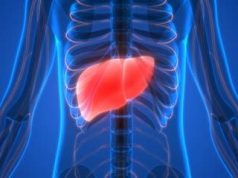Non-drinking linked to increased risks of unstable angina, MI, heart failure, ischemic stroke, PAD, AAA
THURSDAY, March 23, 2017 (HealthDay News) — There are heterogeneous associations between the level of alcohol consumption and initial presentation of cardiovascular disease, according to a study published online March 22 in The BMJ.
Steven Bell, Ph.D., from the University of Cambridge in the United Kingdom, and colleagues examined the correlation between alcohol consumption and cardiovascular disease in a population-based cohort study of linked electronic health records. Data were included for 1,937,360 adults aged ≥30 years.
The researchers found that 114,859 individuals received an incident cardiovascular diagnosis during a median follow-up of six years. There was an association for non-drinking with increased risk of unstable angina, myocardial infarction, unheralded coronary death, heart failure, ischemic stroke, peripheral arterial disease, and abdominal aortic aneurysm (hazard ratios, 1.33, 1.32, 1.56, 1.24, 1.12, 1.22, and 1.32, respectively), compared with moderate drinking. Heavy drinking that exceeded guidelines correlated with an increased risk of presenting with unheralded coronary death, heart failure, cardiac arrest, transient ischemic attack, ischemic stroke, intracerebral hemorrhage, and peripheral arterial disease (hazard ratios, 1.21, 1.22, 1.50, 1.11, 1.33, 1.37, and 1.35, respectively), and with reduced risks of myocardial infarction (hazard ratio, 0.88; 95 percent confidence interval, 0.79 to 1.00) or stable angina (hazard ratio, 0.93; 95 percent confidence interval, 0.86 to 1.00).
“This has implications for counselling patients, public health communication, and clinical research, suggesting a more nuanced approach to the role of alcohol in prevention of cardiovascular disease is necessary,” the authors write.
Copyright © 2017 HealthDay. All rights reserved.








